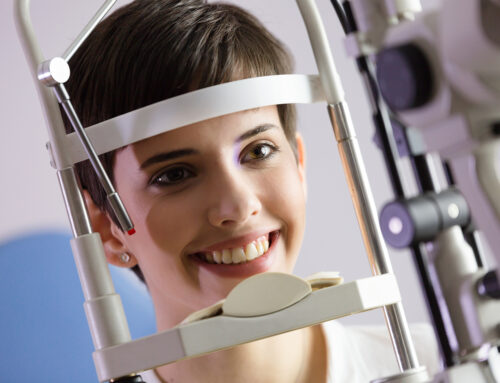How Cataract Surgery May Reduce Your Risk of Dementia
In older adults with cataracts, which is a condition when your eye’s natural lens becomes cloudy over time, resulting in poor night vision, distortions, increased nearsightedness, and blurriness, undergoing cataract surgery can restore vision loss. A recent study out of JAMA Internal Medicine has found an unintended benefit for those undergoing cataract removal; a decreased likelihood of developing Alzheimer’s disease and other forms of dementia later on in life.
How Many Participants Were There?
The study, published in Dec of 2021, took a look at 3,083 men and women who were 65 or older, and free of dementia at the time of their cataract diagnosis. The enrollment window was between 1994-1996 and the study ended on September 30th, 2019. During this timeframe, out of these 3.083 men and women, 1,382 went through cataract surgery, while the remaining 1,701 did not. All data gathered from participants in the study were analyzed between April 6th, 2019, and September 15th, 2021, with researchers concluding that the overall risk for dementia was 29% lower in those who had undergone cataract treatment compared to those who chose not to [1]. It was also found that the finding of lower risk was stronger in individuals within the first 5 years following cataract surgery, versus those found in those who underwent cataract surgery later in life.
What Risk Variables Were Considered?
During this decade-long study, the researchers considered numerous risk factors that would contribute to the development of dementia. These variables included:
- Adjusting for the age of each individual’s initial cataract diagnosis.
- How many years of education each individual had.
- And whether they smoked, had a high body mass index, or presence of hypertension.
The only factor that researchers found to have a bigger effect on dementia risk, other than cataract surgery, was not having the gene APOE-e4, which is associated with an increased risk of developing Alzheimer’s disease. For those unfamiliar with APOE-e4, this gene is responsible for providing the instructions your body needs for creating apolipoprotein E. This protein’s role is to combine with fats (lipids) to form lipoprotein molecules. This is important, as it is their job to package cholesterol with other fats and carry them through your bloodstream. When you do not have normal levels of cholesterol, you can develop certain cardiovascular, neurological, and hearing/sight-related disorders [2].
What About Lowered Risk From Non-Vision Improving Surgeries?
Another variable that researchers wanted to compare against, was whether non-vision-improving surgeries, like glaucoma surgery also had a positive impact on lowering the risk of dementia development. Glaucoma surgery is used to relieve pressure in the eye to help stabilize vision and slow down future vision loss; it does not restore vision at all. In the study, 728 participants gained a diagnosis of glaucoma, and 105 of them underwent glaucoma surgery. Unfortunately, researchers found that it had no impact on dementia risk [3].
Why Might This Be? Physical & Intellectual Pursuits
While the researchers note that this observational study does not necessarily provide us with cause and effect, it does suggest that cataract extraction is associated with a lower risk of developing Alzheimer’s or other forms of dementia in some individuals. The theories, presented as to why this may be, span across physical, intellectual, and physiological reasoning.
- Physically, there may be a healthy patient bias, where those who undergo cataract surgery are generally healthier and are thus at lower risk of developing dementia. Health-conscious individuals may have a higher level of healthcare utilization and therefore may be able to access cataract surgery.
- Cognitively, it is known from previous studies that hearing and vision loss are risk factors associated with a decline in cognitive abilities [4]. Hearing or visual impairments may cause individuals to withdraw from activities like social interactions, intellectual pursuits, and physical exercise. This can increase their risk of developing dementia.
- Physiologically, researchers also suggest that when the visual cortex changes during vision loss, individuals may take less data/information into the brain, leading to brain shrinkage. A previous study, in 2013, did find that after cataract surgery, an individual’s gray matter volume increased [5]. This is not surprising, as the eye is strongly connected to the brain, as it shares the same neural tissue, and grows from the brain itself during natal development [6].
While more research is needed to confirm the associations, this study provides a strong basis for future studies in this area. This significant finding could lead to more people getting the surgery they need and improving their quality of life in the process. Here at Magruder Laser Vision, our team’s passion is all about getting you the clear vision you need to improve your lifestyle. If you have any questions about cataracts or cataract surgery, please reach out to us at (407) 843-5665.




